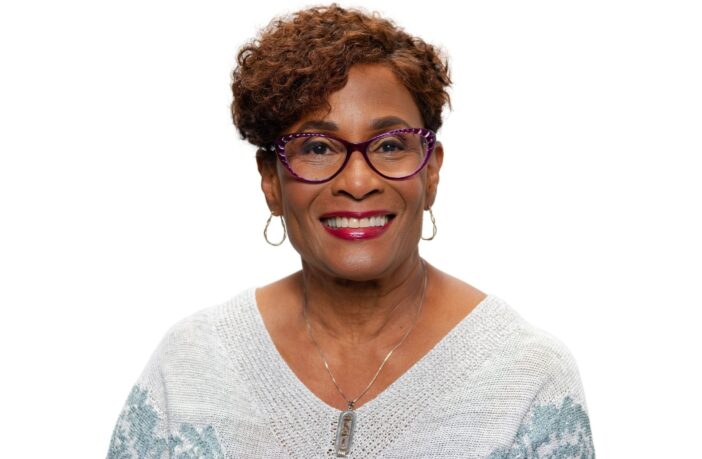By Frances Murphy “Toni” Draper
AFRO CEO and Publisher
AFRO CEO and Publisher Dr. Frances Murphy “Toni” Draper speaks on the beauty of small beginnings when it comes to the entrepreneurship path.
Credit: AFRO photo
I have been an entrepreneur for most of my life. My foray into business did not begin when I was elected president of the AFRO-American Newspaper in the mid-1980s. In fact, my entrepreneurial career began at the ripe old age of nine, when I passionately sold the most Girl Scout Cookies in my troop. It continued with the help of my brother, Jimmy, as we developed a robust AFRO paper route in our Hanlon Park neighborhood when I was 12. We were quite the partnership—he threw the papers on the porch, and I collected the money. Of course, we counted it together every week, put aside the cost of the papers and split the profit. It was a lucrative business for a pair of siblings who had not yet reached their teen years. Eventually, we “outgrew” our paper route, but my interest in business did not wane.
When I was in high school, my cousin Betty, her neighbor Adrian and I decided to join Junior Achievement (JA). I don’t even remember how we found out about Junior Achievement, but there we were, three Black teens from Bentalou Street in West Baltimore, traveling nearly five miles every week to Harford Road in Northeast Baltimore on a Tuesday night to learn about business and entrepreneurship. I still remember our first JA meeting when the three of us walked into the room. You could hear a pin drop. We were the only Black students there, and we didn’t know whether to sit down in the hard wooden chairs or run back to Adrian’s well-worn station wagon as fast as we could. After all, this was Harford Road in the mid-1960s. We chose to stay, and remained active JA participants for two or three years.
Sign up for our Daily eBlast to get coverage on Black communities from the media company who has been doing it right for over 130 years.
Much to our delight and surprise, we were warmly welcomed into the group. Most of the other teens were friendly, and the adult leaders encouraged us to participate fully. We were taught about money management, banking and credit, investing, starting a business, branding and marketing. Most of all, we were encouraged to think creatively and develop new ideas. But it wasn’t all classroom learning. Each of us had to formulate a business plan for a new product or service. I don’t remember what Betty or Adrian came up with, but I decided to make name bracelets—taking individual letters, stringing them together to make someone’s name, and then selling them. We also learned about principled leadership and business ethics– and we were only 16!
As we grew our understanding of the business world, the Junior Achievement mentors also held a speaking contest, which was a highlight for me. Now, some may wonder what that had to do with business, but for me, it was transformative. I had participated in a declamation contest in junior high school (yes, it was called junior high), but for the most part, I shied away from the public speaking spotlight. But here I was, all the way in Northeast Baltimore, learning about entrepreneurship, sales and public speaking. Each of us had to talk about our product, our pricing strategy, our sales, our customer base and how we planned to make a profit. We had five to seven minutes to convince the “audience” that our product was the best.
My fellow Junior Achievers had all kinds of interesting and innovative products, and I had name bracelets, which –to me– paled in comparison. Well, I thought, if my grandfather could “sell ice to an Eskimo,” as he claimed, then surely, I could sell beautiful, one-of-a-kind, economical, colorful name bracelets to my fellow Junior Achievers. And sell I did! In exactly six and a half minutes, I made bracelets sound like the best thing since sliced bread. I won the contest, which earned me a trip to the regional competition. I didn’t win the regional competition, but I learned a valuable lesson about business: When you have a good product or service that meets a perceived want or need, confidently presenting yourself and your company is crucial. So, I not only won the contest, but nearly every person in the room purchased bracelets.
]]>
Like many organizations founded in the early 20th century, JA was not always diverse, especially in its early years. Initially, the organization catered predominantly to White youth, reflecting the broader social and racial dynamics of the time. The integration of Black teens into Junior Achievement programs occurred gradually, largely in response to the Civil Rights Movement and changing societal norms in the United States. The inclusion of Black teens in Junior Achievement began to take shape more significantly in the 1960s and 1970s, as the organization sought to become more inclusive and reflective of the diverse communities it served. JA helped me develop my love for business and understand the power of entrepreneurship.
As James Bridgforth notes on page A4 of this edition, “The narrative of African American economic power is often overlooked or underestimated, overshadowed by persistent disparities and historical injustices. However, to truly grasp the impact and potential of this economic force, one must recognize its depth and breadth across various sectors—from entrepreneurship and consumer spending to workforce participation and investment.”
This August, as we celebrate National Black Business Month, we continue to highlight the contributions of Black-owned businesses to the economy and our role in promoting equity and diversity.
Get your AFRO A CARD today!
Help us Continue to tell OUR Story and join the AFRO family as a member. Members will receive exclusive journalism, and directly support the future of the AFRO. You can choose from three membership plans below.



